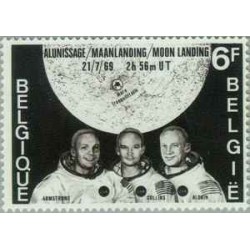- جدید
- ناموجود



Poland 1991 - K. Twardowski 1v
توجه : درج کد پستی و شماره تلفن همراه و ثابت جهت ارسال مرسوله الزامیست .
توجه:حداقل ارزش بسته سفارش شده بدون هزینه پستی می بایست 100000 ریال باشد .
Kazimierz Jerzy Skrzypna-Twardowski (20 October 1866 – 11 February 1938) was a Polish philosopher and logician.
Twardowski's family belonged to the Ogończyk coat-of-arms.
Twardowski studied philosophy in Vienna with Franz Brentano and Robert Zimmermann. In 1892 he received his doctorate with his dissertation, Idee und Perzeption (Idea and Perception), and in 1894 he presented his habilitation thesis, Zur Lehre vom Inhalt und Gegenstand der Vorstellungen (On the Doctrine of the Content and Object of Presentations). He originated many novel ideas related to metaphilosophy. He lectured in Vienna in the years 1894–95, then was appointed professor at Lwów (Lemberg in Austrian Galicia), (now Lviv in the Ukraine). An outstanding lecturer, he was also a rector of the Lwów University during World War I.
There Twardowski established the Lwów-Warsaw School of logic and also became the "father of Polish logic", beginning the tradition of scientific philosophy in Poland. Among his students were the logicians Stanisław Leśniewski, Jan Łukasiewicz and Tadeusz Czeżowski, the historian of philosophy Władysław Tatarkiewicz, the phenomenologist and aesthetician Roman Ingarden, as well as philosophers close to the Vienna Circle such as Tadeusz Kotarbiński and Kazimierz Ajdukiewicz.
In his On the Content and Object of Presentations, Twardowski argues for a distinction between content and object in the frame of the theory of intentionality of his teacher Franz Brentano. According to him the mind is divided in two main areas: acts or mental phenomena, and a physical phenomenon. For example an act of presentation is aimed at a presentation. This is what he called ‘intentionality’, aboutness. Every act is about something, but also every presentation goes together with an act of presentation.
This theory suffers from the problem that it is not clear what the presentation exactly is. Is the presentation something only in the mind, or is it also in the world as object? Twardowski says that sometimes presentation is used for the object in the world and sometimes for the immanent content of a mental phenomena.[1]
Twardowski offers a solution for this problem and proposes to make a distinction between the content of a presentation and the object of a presentation.
In his book Twardowski offers an analogy to clarify this distinction. He uses the example of a painting.[2] People say of a landscape that it is painted, but also of a painting that it is painted. In the first case the word ‘painting’ is used in a modifying way (a painted landscape is not a landscape at all), while in the latter case the word painting is used in a qualitative or attributive way. Twardowski argues that presentations are similar. The content is the painted painting and the object is the painted landscape. The content resembles the present ‘picture’ in your mind, and the object the landscape.
تشکر نظر شما نمی تواند ارسال شود
گزارش کردن نظر
گزارش ارسال شد
گزارش شما نمی تواند ارسال شود
بررسی خود را بنویسید
نظر ارسال شد
نظر شما نمی تواند ارسال شود

Poland 1991 - K. Twardowski 1v
check_circle
check_circle















